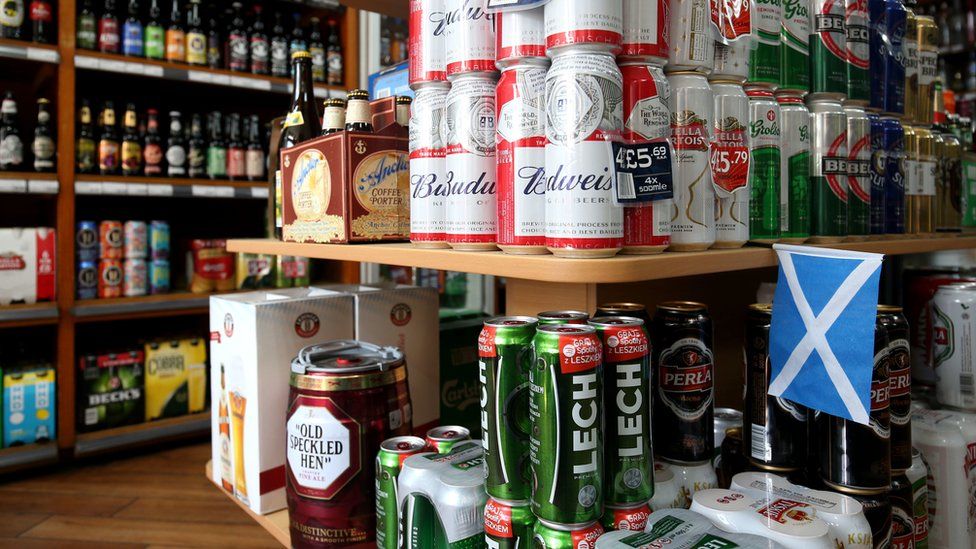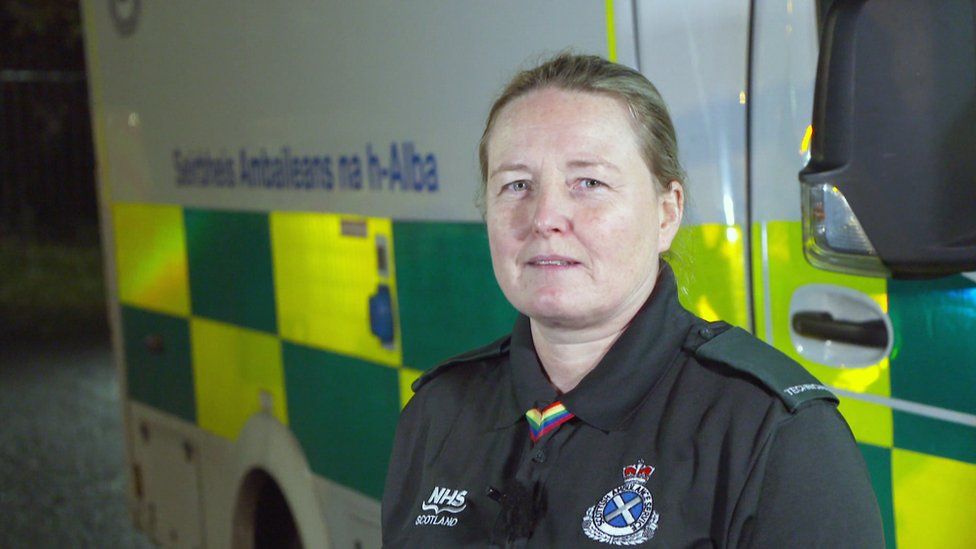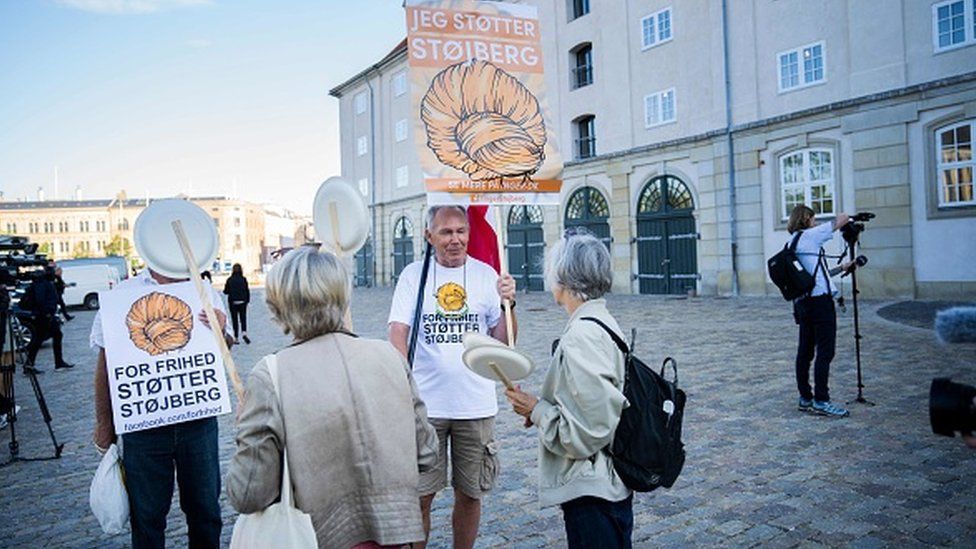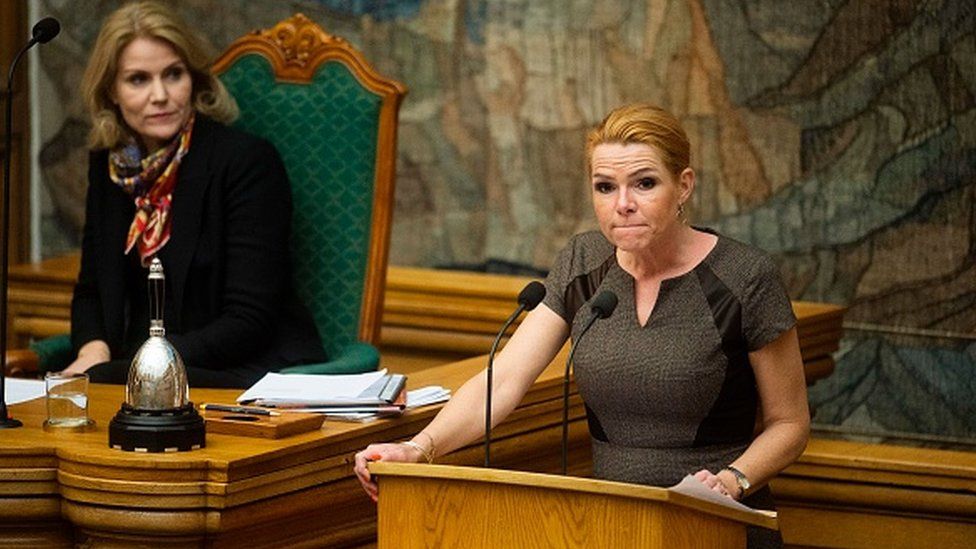Tuesday, 14 December 2021
Ugandan opposition leader ‘under house arrest’
Cyril Ramaphosa: South Africa president being treated for Covid
Covid in Scotland: More ambulance calls to lockdown home drinking
 IMAGE SOURCE,PA MEDIA
IMAGE SOURCE,PA MEDIAHowever, ambulance crews found that after April, despite licensed premises remaining closed, the number of calls increased again, with these calls spread throughout the week rather than concentrated at weekends
At the height of the pandemic, from April to June 2020, there were 18,832 alcohol-related callouts – 16% of all callouts.
“During the pandemic, both in the UK and abroad, licensed premises – including bars, restaurants and nightclubs – faced significant restrictions, including closures and curfews, which helped to reduce spread of the virus,” Prof Fitzgerald said.
“However, we know that these restrictions also led to many people drinking more alcohol at home.”

‘People were pouring bigger measures’

Gail Macfarlane has been an ambulance technician with the Scottish Ambulance Service in Glasgow for the last five years.
She said: “Almost every day we get an alcohol-related job, people on the street who are alcohol dependent or – at this moment in time – we get a lot of social drinkers who have overdone it.
“When people are enjoying themselves they get carried away. They have falls, get into fights, and that means jobs for us to do. It can mean we don’t get to elderly people who had a fall, because we’re dealing with others because of their social drinking and intoxication.”
She said people drinking at home during lockdown could bring its own problems.
“When the pubs and clubs were closed more people were drinking in the house, and at home people were pouring bigger measures than you get in a bar,” she added.

Prof Fitzgerald said: “The views expressed by paramedics are powerful and give pause for thought about whether business recovery post-Covid has to mean a return to the ‘mass intoxication’ described.
“This is surely an opportunity for politicians and clinicians to show leadership in pushing for better alcohol policies that protect the NHS and frontline services. At a time when policymakers want to support the hospitality sector, but also wish to protect health services, there is an opportunity to put in place win-win policies that can do both.”
‘Reinforces previous findings’
Alison Douglas, chief executive of Alcohol Focus Scotland said, “Whether it’s weekend nights out or weekdays at home, these findings show the impact of alcohol on the Scottish Ambulance Service is unacceptable and unsustainable.
“Paramedics should not have to dread working a Friday or a Saturday night shift. The increase in callouts related to home drinking during the pandemic is concerning and reinforces previous findings that some of us, particularly heavier drinkers, have increased our drinking.
“With a sixth of all callouts being alcohol-related in 2020, we agree that further action needs to be taken to change Scotland’s unhealthy relationship with alcohol.”
The Scottish government has been contacted for comment.
……………………………………………………………
Inger Stoejberg: Jail for Danish ex-minister for asylum separations
 IMAGE SOURCE,GETTY IMAGES
IMAGE SOURCE,GETTY IMAGESMs Stoejberg resigned as deputy leader of the conservative-liberal Venstre party last February after its MPs voted to impeach her.
She is currently an independent MP, but could lose her seat in a vote to remove her from parliament.
Ms Stoejberg is a divisive figure in Denmark, but some commentators believe Monday’s verdict may galvanise her supporters on the right wing of politics.
A long-running case
The case started in 2016, when a Syrian couple complained about being placed in separate asylum centres to Denmark’s ombudsman.
Investigations by both the ombudsman and a special commission concluded that their separation and others ordered by Ms Stoejberg were illegal.
Under Danish and human rights law, each case must be assessed individually. This requirement had been ignored and therefore breached human rights, the investigations found.
 IMAGE SOURCE,GETTY IMAGES
IMAGE SOURCE,GETTY IMAGESTwo independent lawyers then determined there were grounds for impeachment, and in February this year a large majority of MPs voted in favour, including Ms Stoejberg’s own party.
The 26 judges of Denmark’s Supreme Court convened to decide whether Ms Stoejberg had violated the European Convention on Human Rights and a ministerial accountability law.
On Monday, 25 of those judges voted to convict her of the charges.
A contentious verdict
Monday’s verdict has divided opinion and sent shockwaves through Denmark’s political establishment.
The parliamentary leader of the nationalist Danish People’s Party, Peter Skaarup, said he found the verdict incomprehensible and backed Ms Stoejberg’s separation policy.
But Rosa Lund, an MP for the left-wing Unity List party, welcomed the judgement and said there had to be consequences for minsters who did not comply with the law.
Most of Denmark’s six impeachments have ended in acquittal. However, in 1995 ex-Justice Minister Erik Ninn-Hansen was handed a four-month suspended sentence for blocking refugees from Sri Lanka bringing their families to Denmark.
Impeachments trials in Denmark can result in fines and prison sentences if a guilty verdict is rendered, unlike those in the US, which are political.
…………………………………………………………
Britain announces first death from Omicron, steps up vaccination drive
A Royal Encounter at Madame Tussauds London - Part 7
Exploring the Majesty of the Palace and Its Distinguished Guests Greetings, ladies and gentlemen! My name is Sofonie Dala, and I am deligh...

-
Since the July 26 coup, Niger has become the latest hotbed of disinformation in the troubled Sahel region as West African powers grapple wit...
-
Angolan President of Republic João Lourenço marked Saturday (26) the third year of his five-year in office, marked by the strong negative ...
-
Celebrating Purpose, Passion & Powerful Public Engagements! Dear Changemakers, As we reach the midpoint of 2025, we’re thrilled to sha...





